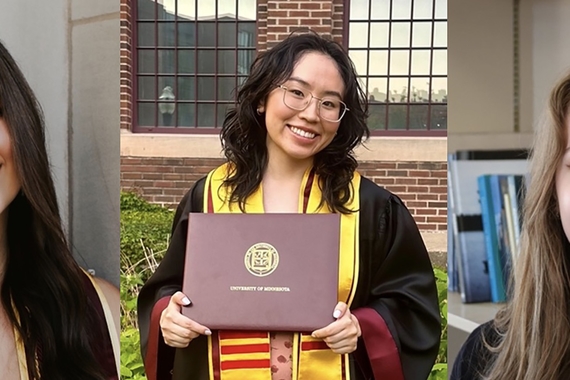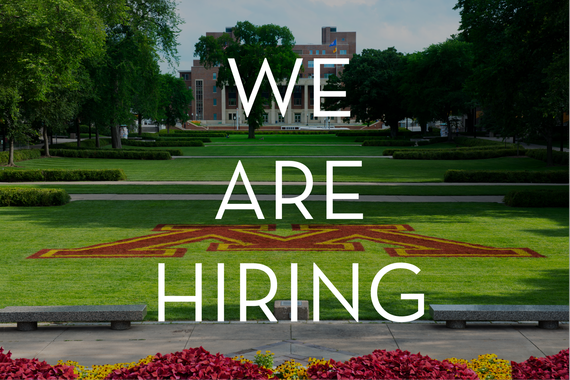“I wonder how that works?”
CLA undergraduate student Parker Sinkula is interested in how to make “the unfamiliar understandable.” The technical writing & communications major shares how his studies have stimulated his curiosity through its diverse curriculum and how it applies to the world around us.
What are you studying and why did you choose your major(s) and/or minor(s)?
I’m studying technical writing & communication with a focus on information technology & design. Until the second semester of my sophomore year, I was an undecided student. My leading choices were herpetology and architecture, and I wasn’t even aware that the technical writing major existed.
However, I had a strong drive to understand how people processed information. “Could I describe this thing to a person who had never seen it?” or “Why did those two people explain the exact same event in two completely different ways?” My goal was to find a major that would let me ask and answer such questions.
I spent my first year completing generals and looking into promising majors. As I said, architecture and animal science were on the docket, but I was no great shakes at math or biology. So I checked out the writing studies department and ran into course descriptions of the required technical writing & communication courses. There were classes dedicated to picking apart communication theory, designing visual projects, and writing up clear and engaging descriptions—exactly what I’d been looking for.
What course would you recommend for other students in your major? And for students outside of your major, what course would be a good introduction to what you study?
If you’re a student looking to get into technical writing for the first time, I would recommend trying WRIT 1001 - The Art of Explaining Things: Introduction to Technical Writing and Communication. This class is an excellent sampler for the major. You revise some existing works of communication, create some writings of your own, and generally get a feel for the projects that take up a technical writer’s time.
If you’re a technical writing major, take courses outside of the major! Anthropology, art history, physics, geology, logic, and philosophy—any subject that has ever made you think, “I wonder how that works?”
This semester, I’m taking ANTH 3036 - Bodies in Society and ENGL 3114 - Dreams and Dream Visions. ANTH 3036 is an examination of how human bodies have been considered (and ignored) over the years in discourse over race, power, art, and politics. ENGL 3114 is a literature review of a 14th-century poetic movement, examining how poets from the period incorporated dreams and dream psychology into their poetry.
These two classes are teaching me how to make the unfamiliar understandable, both to myself and to others—a technical writer needs to know how to do this! As an added benefit, out-of-major electives are typically really fun! From my experience, teachers and students in esoteric electives are passionate and engaged.
Which CLA class or professor has had the biggest impact on you? Why?
WRIT 4662W - Writing With Digital Technologies! There’s a common trajectory to college courses. First, you study a skillset and/or a group of texts. Second, you’re introduced to a problem: a test, project, or paper. I like this structure—even the most difficult project feels accomplishable when you’ve built up a set of relevant problem-solving skills beforehand.
However, as I took more courses in the major, I began running into assignments with increasingly complex and open-ended prompts and problems. I wondered, could I produce higher-quality work by switching up the order of approach? What if I read the constraints of the assignment first, then started up the learning and research process afterwards? Junior year, I took WRIT 4662 and found the answer—yes!
WRIT 4662W adheres to a structure that I feel every technical writing student should experience at least once. By the first or second day of class, we knew the rubric of our first assignment. We still interacted with readings and lectures, but we could choose to engage with the ones that best suited our individual approach to the assignment. WRIT 4662W’s approach was extremely refreshing—taking an unconventional angle to problem solving can open a lot of creative doors.
What has been your favorite part of your experience with the department(s) and within the major/minor?
I love feeling that with every class taken and project completed, I’m improving my communication skills. I didn’t choose this major because I was already an excellent writer or speaker—I’m just ready and willing to get better! And from my experience at the University, the technical writing major is an incredible place to make improvements.
The course breakdown for technical writing at the University consistently impresses me. Some classes teach communication principles in the abstract—diagrams, debates, theory—while others build abilities through practice and exposure. I came out of the program with a full set of communication skills without ever having felt pressure to learn everything about theory, practice, ethics, and presentation at the exact same time.
What is one aspect of your major that has surprised you? What do you wish more people understood about what you study?
One thing that surprises me about the technical writing major is the amount of work that’s done off the written page. Through my coursework and in my extracurriculars, I’ve worked with logo design, website banners, video production, and user testing. We’re in a broad field, and it's a disservice to technical writing to limit our job description to books, manuals, or text in general!
This isn’t to say that conventional, text-based technical writing jobs are undesirable—I wouldn’t be in this major if I wasn’t ready to dish out writing at a moment’s notice.
However, people already understand that technical writing involves a good deal of typing and editing. I simply wish to see coverage of technical writing that presents it truly and accurately: a versatile field of communication and writing that enables access, innovation, and connection.



